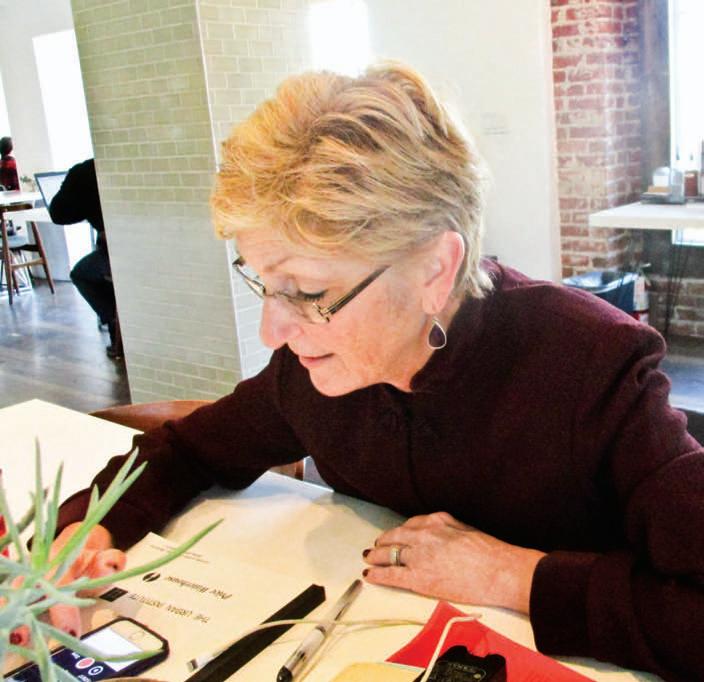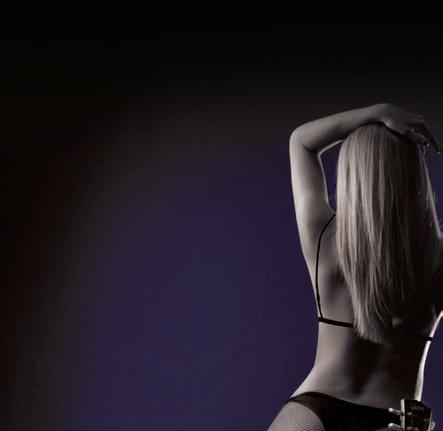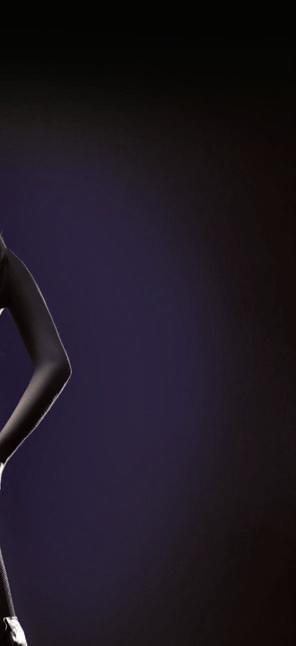
8 minute read
NEws
from March 8, 2018
Just folks
For those who wonder why members of Congress so often seem untroubled by the gap between the one percent and the rest of the country, Maine’s Portland Press-Herald has scrutinized the financial disclosures of the last Congress and the current Congress. One of the newspaper’s findings is that congressmembers keep getting richer—and are leaping ahead of the rest of the country rapidly.
Advertisement
Congresses meet in two-year sessions, and they file their disclosures at the start of each session. The Press-Herald checked the 2018-2019 disclosures against the 2015-2017 disclosures and reported:
“The total wealth of all current members was at least $2.43 billion when the 115th Congress began, 20 percent more than the collective riches of the previous Congress, a significant gain during a period when both the Dow Jones industrial average and Standard & Poor’s 500 index rose slightly less than 10 percent.”
Reporter David Hawkings, who did the research, also reported that one in 13 members of Congress is a one-percenter.
Bundy tours West
Rancher Cliven Bundy has been celebrating his court victory with a speaking tour—in Montana.
At one appearance in Plains, the audience sang “Ballad of the Alamo,” a fitting tune given that the Alamo defenders were fighting to protect slavery in northern Mexico, and Bundy has said that “Negroes” might have been “better off as slaves.”
Meanwhile, other Westerners are debating how to stop Bundy and not make the same mistakes in the future. In Oregon, Steve Stuebner, who frequents the Malheur National Wildlife Refuge that Bundyites took over in 2017, faulted the U.S. Justice Department:
“Why, for instance, didn’t the feds charge Ammon Bundy and his followers with felony criminal trespass? I mean, it was abundantly clear to any American watching television or the internet that Ammon Bundy and his followers took over Malheur National Wildlife Refuge at gunpoint, trespassed and remained for six weeks! The evidence was clear! ... But no, the feds charged them with ‘conspiring to impede federal workers from their jobs.’ Government lawyers failed to prove the conspiracy charge, and the jury acquitted the occupiers.”
A Center for Western Priorities opinion survey indicated most Nevadans have little sympathy for Bundy’s public land views.
Bundy has recently begun using a heavier emphasis on Christianity in his public statements.
Candidates on the right
Nevada’s Independent American Party has announced its ticket for the 2018 election. The party met in a nominating convention in Sparks last month, but release of the names on the ticket was delayed while a dispute over the candidate for governor was settled.
Russell Best of Stagecoach will be the IAP candidate for governor. He is a Navy veteran and owner of an independent mortgage firm who previously ran for the U.S. House in district four. Cliven Bundy campaigned for him in that race.
Locally, the IAP will contest state Senate district 13 in Washoe County, with Sparks resident Charlene Young as candidate. Democratic candidate for governor Chris Giunchigliani, seen here at Hub Coffee Roasters, supported a 2016 ballot measure providing for more firearms background checks.
PHOTO/DENNIS MYERS
Catching up
Politicians try to cope with new feelings on guns
in the 2016 election, by a vote of 558,631 to 548,732, Nevadans voted to prohibit a gun owner from selling or transferring it to another person unless a federally licensed dealer first conducts a federal background check on the buyer.
Attorney General Adam Laxalt, who had opposed enactment of that ballot measure—ballot Question One—then issued a legal opinion advising the state Department of Public Safety not to enforce the law and said that Nevadans were “excused from compliance” with it because the state had no administrative agreement with the Federal Bureau of Investigation to conduct the checks (only eight states have such arrangements). The ballot measure language requires federal background checks and disallows state background checks, though one federal official has said the state checks are superior.
Laxalt’s opinion effectively voided Question One, because state agencies cannot ignore such opinions without incurring liability.
Laxalt failed to offer suggestions to the 2017 Nevada Legislature, which would go into session in a few weeks, on alternative ways to implement the voters’ intent, possibly without federal checks. For instance, legislators could have set up a new and separate system for conducting state background checks. A separate system from Question One would not be bound by the restrictions of the ballot measure, which in any event was not operating, thanks to Laxalt.
Or Laxalt could have gotten on the phone to the U.S. attorney general, who oversees the FBI, after the new Republican administration took office.
If a Republican attorney general of Nevada had called a Republican attorney general of the United States to try to work something out, what might have happened?
Political scientist Fred Lokken noted that U.S. Attorney General Jeff Sessions has a record of support for state and local governments and might well have approached the FBI on Laxalt’s behalf if Laxalt had made the request.
But that would have required Laxalt to act on behalf of voter intent, and Lokken said Laxalt had no political reason to make the voter approved program work in any form: “I think he was more interested in making a barrier to background checks.”
Democrats have sharply attacked Laxalt for blocking the voter-approved program.
After a lawsuit was filed following the Las Vegas concert shooting, the Nevada Democratic Party sent out a news release that read in part, “During a hearing Friday in Clark County District Court, the plaintiffs’ lead attorney stressed that since the passage of the question, there has been just one phone call between state officials and the Federal Bureau of Investigation regarding implementation [of Ballot Question One]—and that call was from a Nevada Department of Public Safety official, not [Gov. Brian] Sandoval or Laxalt.”
In April last year, Clark County Sen. Yvanna Cancela, a Democrat, told a news conference, “Voters did their part. They showed up at the ballot box and decidedly said they want background checks on gun sales in the state. It’s now on the attorney general to step forward and enact the law of the land. Until he does that, I think he’s going to be hearing from a lot of angry Nevadans.”
But the Democrats have not argued with Laxalt’s legal scholarship, which makes it difficult to fault his conclusions.
Nor were the Democrats at their most deft during the legislature that followed enactment of Question One. They pushed through a bill providing for universal background checks, only to have Gov. Brian Sandoval veto it. A bill that—after Laxalt shut down the Question One program—provided for the limited background checks in the ballot measure would have been more difficult for Sandoval to veto, since it would have appeared in concert with voters’ intent.
In a prepared statement this week, Senate Democratic leader Aaron Ford said, “The measure [Question One] passed and we expected, as voters did, that Attorney General Laxalt and his former Chief Deputy Wes Duncan would follow the will of the people. But all we’ve gotten are excuses, delays and more excuses. It’s not up to the legislature to do their job. The reality is that we have an attorney general who is in the pocket of the NRA and who refuses to enforce the will of the voters.”
Ford did not address how to get around the FBI problem.
Lokken said politicians have been caught by a sudden change in the public opinion climate in Nevada following the Las Vegas concert shooting and the Parkland, Florida shooting.
Meanwhile, the issue has seeped into the Democratic primary for governor, and one of the few political figures who got out in front on the issue before Las Vegas and Parkland is in that race. Clark County Commissioner Chris Giunchigliani has faulted her opponent—fellow Commissioner Steve Sisolak—for not supporting the ballot question. Giunchigliani endorsed Question One by donating a reportable $2,000 to the campaign for Question One.
Sisolak did not discuss Question One during 2016, but the Nevada Independent’s Riley Snyder found a statement Sisolak made several years earlier, in 2013. In that statement, Sisolak said nice things about background checks generally—but hedged it with language about the checks needing to be “not too invasive or not too onerous.” It is also an issue for Laxalt. After Parkland, Democrats quickly pointed out that the Republican attorney general was scheduled to repeat his 2017 speak“Voters did ing engagement before the national convention of the National Rifle their part.” Association. Laxalt promptly distanced himself from the NRA Sen. Yvanna Cancela by canceling the appearance and telling the press he had never “confirmed” a 2018 speech. The Democrats then filed a public records request for all paperwork dealing with the speech so they could check out his story. Sandoval and Laxalt are both taking steps to mitigate the damage the new climate of opinion has done to them by planning school safety “summits”—Sandoval with school superintendents, Laxalt with law enforcement officials. Given the role that students are taking in the dialogue, it’s striking that neither official has announced plans to include them, though Sandoval said he may later appoint a committee that includes students. Ω




First place

$5 Off With Backstage Pass

Dolores Feemster, seated, speaks with county commissioner reelection candidate Kitty Jung, left, at Feemster’s home in Reno. Feemster’s fence is sought-after as a location for campaign signs in election years, and Jung got the first placement this year. Feemster is the matriarch of a family that has provided numerous community leaders in Reno. Live entertainment tax of 9 not included in ticket price.











